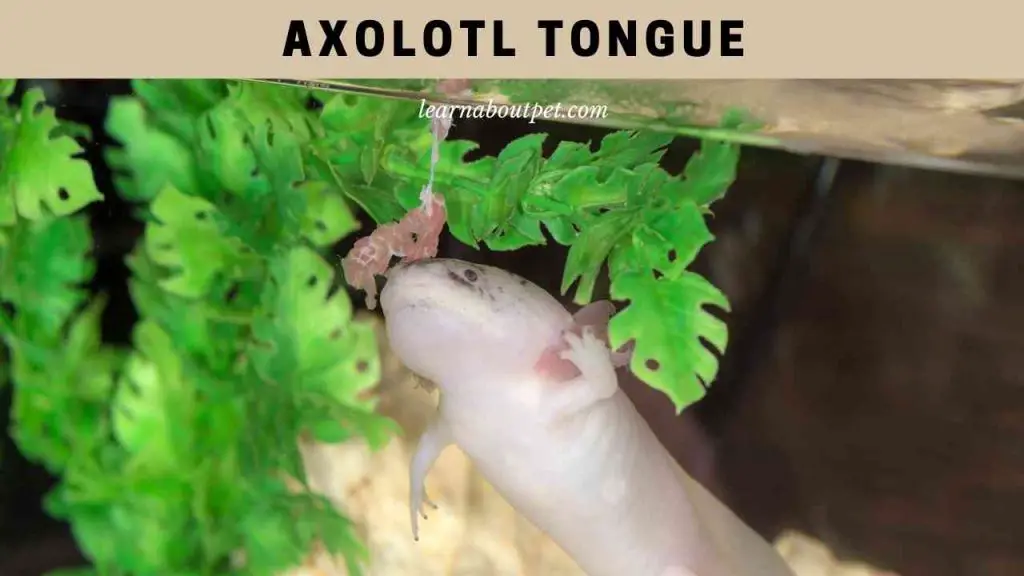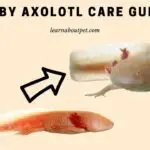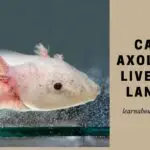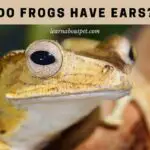Axolotls are very pleasing to pets. They are cute, peaceful and quiet pets that are not very demanding. But many owners have concerns regarding their tongue because owners often say that they have never seen the tongue of their pet is it normal?
Do axolotls have tongues? Yes, the axolotl tongue is an attached muscle to the lower mouth that can’t be taken out. It is flat and it helps in moving the food from tongue to stomach. The tongue of the axolotl is fixed however, in rare cases can get separated from the mouth when they metamorphose.

Do Axolotls Have Tongues?
Yes, axolotls do have tongues. However, most of the time owners fail to notice it because it can be a struggle to track one. The tongue of axolotls is fixed in their mouth just like most of the fishes. Which means they can’t take their tongue out. This thick tongue stays fixed during its lifetime because axolotls don’t go through metamorphosis.
Their tongue is fixed more like a flat pad that is fixed to the bottom half of their mouth. Because they don’t go through metamorphosis, the axolotl will not have a free moving tongue that they can use to grab and reach out to prey, their entire life.
Is Axolotl With Tongue Out Rare?
Rarely owners may say “my axolotls have weird tongues out, is it rare? Yes, axolotls with a tongue out are very rare. An axolotl can only have a free moving tongue out when metamorphosis takes place in its body, which happens very rarely in nature.
If that is happening due to nature, it can be due to a rare combination of genetics that leads to metamorphosis in the axolotl, where axolotl will also lose its gills and become terrestrial. However, it is very rare.
Another way an axolotl may get a free tongue, and get morphed through chemical baths or injections. However, this should never be practiced by owners as it is as dangerous for axolotls as it is for the owners to do this.
Do Axolotls Have A Tongue Problems?
No, an average axolotl will not have tongue problems, many owners consider that their axolotls have tongue problems but that isn’t the truth. If the axolotl is having a fixed tongue, it is normal.
A normal axolotl has a thick tongue attached to the lower part of the mouth, which works as a base to transport the food from the mouth of the axolotl to the stomach.
Do Axolotls Have Taste Buds?
Yes, axolotls do have a taste that helps them to taste their food. These taste buds are present on their tongue.

Is The Axolotl Tongue Poisonous?
No, the axolotl tongue is not poisonous. Many people mistake axolotl to be poisonous due to their exotic shape, but axolotls are not poisonous.
What Does It Mean When An Axolotl Flicks Its Tongue?
Axolotls can’t flick their tongues because their tongue is attached to their mouth and they can’t take their tongue out to flick.
In very rare cases, when axolotl sticks tongue out at owner, it can be possible that they are morphed and trying to breathe from their mouth. How to make axolotl have tongue? It is not possible and the owner should also not try it as it can be cruel towards the axolotl.
What Is Shape Of Axolotl Tongue?
The tongue of the axolotl is attached to their mouth. The tongue is more or less similar to a human tongue. It is a flat-shaped muscle that sits in the mouth of the axolotl.
What Is Color Of Axolotl Tongue?
The color of the axolotl tongue would vary from axolotl to axolotl. The color of the tongue can be between red to light pink.
Final Verdict – Axolotl Tongue
The tongue of an axolotl is a flat base that is attached to their lower mouth. Axolotls can’t move or take out their tongue, but it helps them to move their food from mouth to stomach.

In rare cases, when an axolotl metamorphoses or go through some chemical process, they may take their tongue out.
As a pet lover, make sure to learn about pet more and give your pet axolotl a good and comfortable life!

Welcome to Learn About Pet. My name is Rajkumar Ravichandran and I love all pets, travel, and amazing food. I write about my passion and personal experience caring for multiple pets in this blog! ❤️
Post Disclaimer
DISCLAIMER: THIS BLOG OR WEBSITE, "Learn About Pet", DOES NOT PROVIDE YOU WITH MEDICAL ADVICE AND IS NOT A SUBSTITUTE FOR MEDICAL ADVICE. ALWAYS GET IN TOUCH WITH YOUR PERSONAL VETERINARIAN AND USE INFORMATION HERE AS GENERAL ADVICE.
The information, including but not limited to, text, graphics, images and other material contained on this website are for informational purposes only. No material on this site is intended to be a substitute for professional veterinary advice, food recommendation, diagnosis, or treatment. Always seek the advice of your veterinarian or other qualified health care provider with any questions you may have regarding a medical condition or for pet food related questions.







